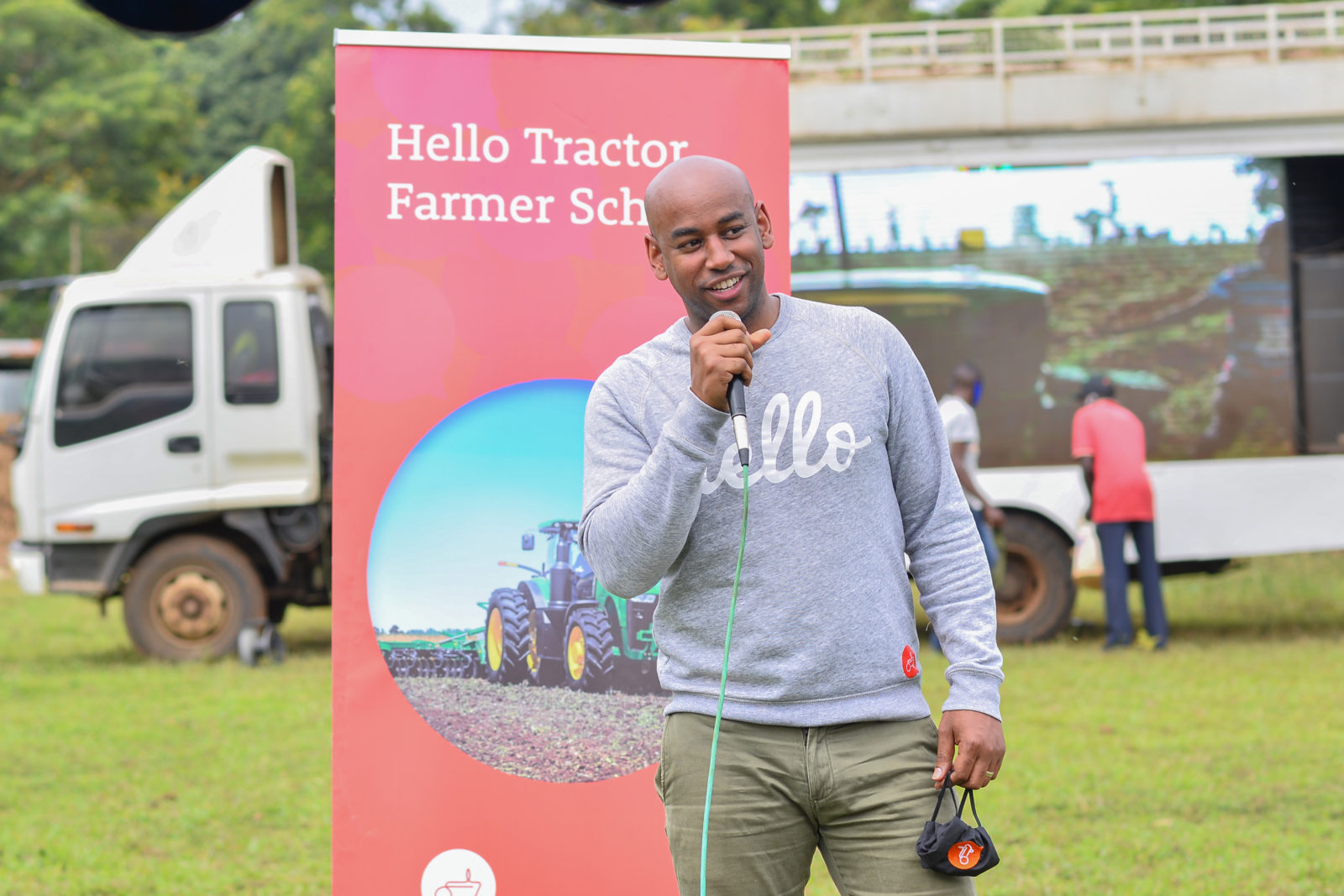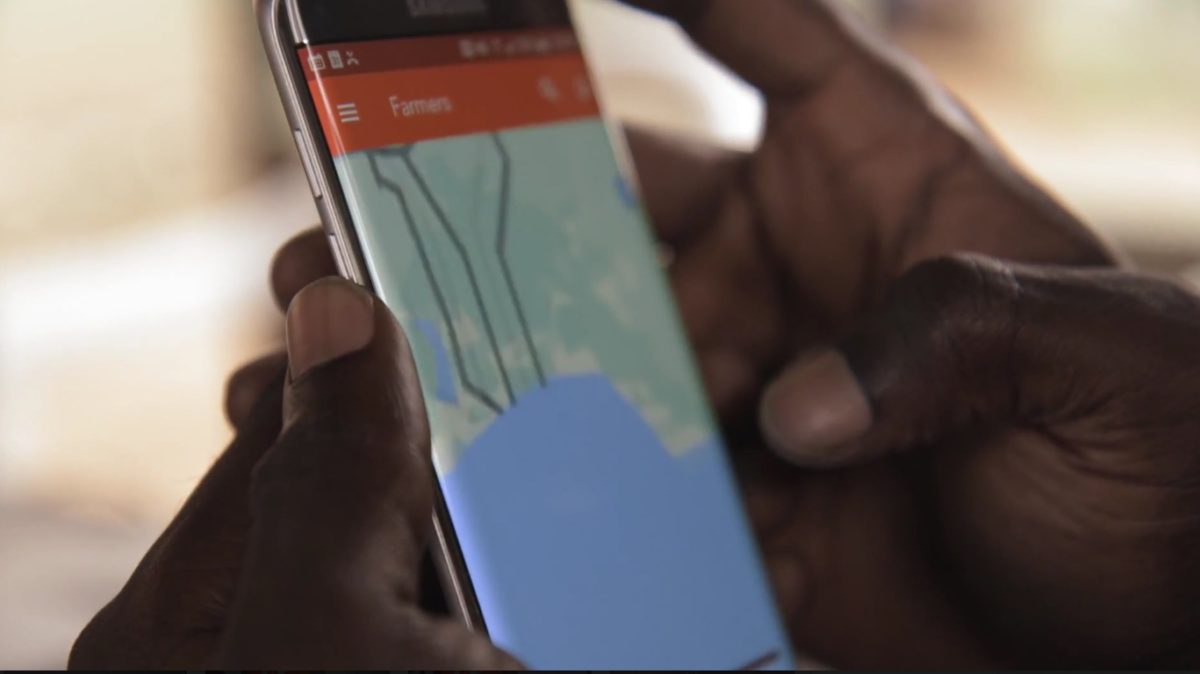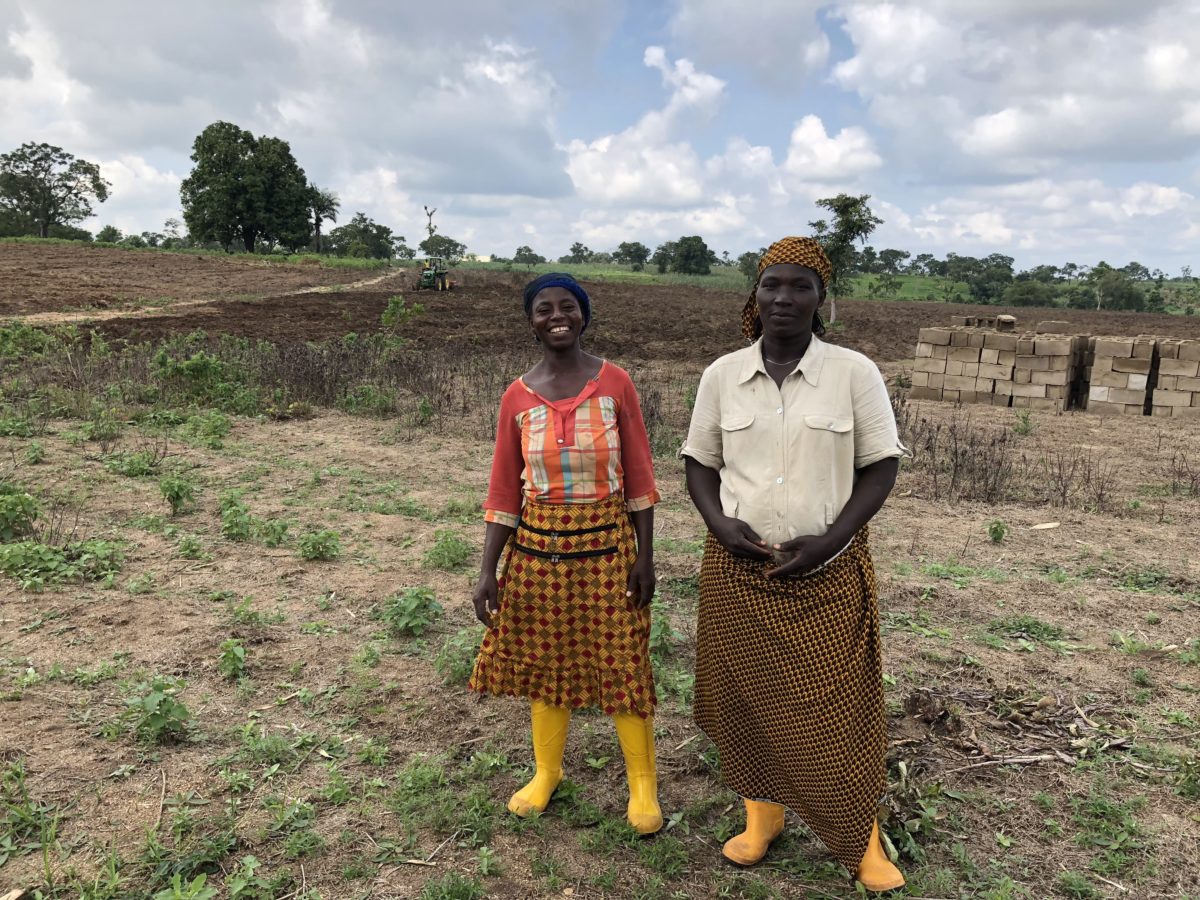How Hello Tractor Disrupted the African Farming Industry Using IoT

Welcome to our new interview series, The Next Level. In this series, we catch up with successful Black entrepreneurs who have taken their businesses to the next level in their respective industries.
This week, we had a chance to chat with Jehiel Oliver, founder and CEO of Hello Tractor. Founded in 2014, Hello Tractor is an agricultural services platform that connects tractor owners with rural farmers in Sub-saharan Africa and Southeast Asia. By creating equitable access to tractor services, Hello Tractor helps smallholder farmers improve their livelihoods and increase food security in their communities.
BBG: Hello Tractor is such a grand and innovative idea. What inspired you to create it?
JO: The idea behind Hello Tractor came through the initial exposure I got from working in global finance and agriculture. I was able to see firsthand the challenges that smallholder farmers face in accessing machinery to cultivate their land. Hello Tractor’s primary goal is to improve smallholder farmer income. I saw an opportunity to get involved in mechanization because that’s one of the few areas in agriculture where there’s a lot of commercial untapped potential. And for me, a commercially viable solution that could scale was important because of my private sector background.
Across Sub-Saharan Africa, 220 million farmers live on less than $2 a day. Many of them struggle to produce enough food to feed their families and sustain their livelihoods. Tractors and other farm equipment are expensive and financing is almost non-existent. However, I realized that if farmers can have access to tractors, that’s as good as owning one. This was the rationale behind the establishment of Hello Tractor.
BBG: For those who are unfamiliar, tell us more about the services you offer.
JO: Hello Tractor is an agricultural technology company that connects tractor owners to smallholder farmers across Sub-Saharan Africa and South East Asia through an IoT powered farm equipment sharing application. Our solution begins with a low-cost hardware monitoring device that can be installed on any tractor, connecting it to the Hello Tractor cloud for remote data tracking and analytics. This grants tractor owners on our platform full oversight into what their tractor is doing at any point in time on the farm, allowing them to make more informed decisions while connecting more easily with smallholder farmers booking for tractor service.

By expanding tractors’ serviceable geography, Hello Tractor enables owners to grow their business, providing employment opportunities for service providers and rural booking agents (tech-savvy youth and women aggregating smallholder farmer demand for tractor services within their community). By creating equitable access to tractor services, Hello Tractor enables smallholder farmers to earn more and grow more, improving livelihoods and food security for their families and communities.
BBG: Merging technological space with real, tangible assets is often tough and requires advanced logistics. What challenges and growing pains did you face when developing Hello Tractor into what it is today?
JO: The journey to the Hello Tractor you see today has not been without its fair share of challenges. Fortunately, these served as learning experiences and informed some of the key business decisions we have made to date.
For example, when we started Hello Tractor we sold two-wheel tractors, coupled with our telematics technology. It seemed like a great idea at the time, until the realities and drawbacks started to set in. The machine in itself is great and very useful for smallholders. Unfortunately, when you import it into the region, the cost of the machine goes up by about 40%. When cost goes up, the utilization rate also needs to go up in order to reach that economic break-even point and that is where our technology comes in.
The issue, however, was that reaching the break-even point required heavy usage of the tractor. This led to wear and tear and series upon series of breakdowns. We quickly found ourselves saddled with the responsibility of taking care of every issue the customer faced. We also had to manage our spare part supply chain, which was not easy. It was simply a daunting task selling the two-wheel tractors while providing the kind of after-sales support that the customer needs.
These challenges informed our decision to pivot our business model. In early 2017, we decided to become a software service provider exclusively. Making this switch allowed us to maintain our profitability while still providing a positive impact to the end users. Furthermore, this shift has allowed us to partner more closely with existing tractor manufacturers who no longer view us as a threat but as a partner in the space that can improve tractor utilization.
BBG: Too often people underestimate the economic and technological prowess present in Africa. How has being located in Kenya and Nigeria been a strength for Hello Tractor?
JO: We chose Nigeria as our initial target market due to its size, pro-private sector policies, and cultural emphasis on innovation. These factors were very key in enabling us to establish our business much quicker and then scale into new markets, including Kenya.

Just like in Nigeria, a vast majority of Kenyan farmers also live below the poverty line. Because these farmers lack the funds needed to purchase farm equipment, there is a lower rate of mechanization. However, if these farmers have access to tractors, that is as good as owning one. This meant that our model was highly relevant to the Kenyan market and it only made business sense to fully establish our presence there as well.
BBG: Hello Tractor is changing lives throughout the places you offer your service. Do you see Hello Tractor continuing to penetrate the markets you are in, or do you have plans to expand, perhaps even beyond Africa?
JO: At Hello Tractor, our overall strategy is centered around disrupting and reshaping a complex and antiquated ecosystem (agricultural mechanization) by driving efficiencies through technology. Outside of Nigeria and Kenya, we already have presence in other countries across sub-Saharan Africa including Ghana, Angola, Ivory Coast, Uganda, Tanzania, Sengal, Mozambique as well as Malawi. We also have some presence across South-East Asia in countries such as Thailand, India, Bangladesh and Pakistan. We aim to continue to grow across these markets while scaling into other smallholder-dominant markets in Africa and Asia, with the goal of providing mechanization access to 15 million farmers by 2024.
BBG: What advice would you give to the next generation of entrepreneurs that have grand ideas they would like to pursue?
JO: I would say be motivated by your passion, think about the realities around you, and think about how your unique attributes can benefit the environment around you. Being well-intentioned is great, but is not always good enough. It is important to think through unique personal traits that can lend themselves to solving bigger issues. There are a lot of well-intentioned people, and sometimes just being well-intentioned gets in the way of progress. You must have a tangible skill set that can be used to tackle some of these big problems.
It’s also super important to seek to work with industry experts who have a deep understanding of local contexts and can provide relevant advice that will ensure you are on the right track. It is common, especially in the development space, to have people without a deep experience level think that they are experts. They use words like “capacity building” without deeply understanding local contexts.
What makes Hello Tractor special is that we hire people with direct experience who come from farming families themselves. They’ve come from the countries they work in. That local perspective is key and can then be coupled with the software and technology.
BBG: What do you see as the future of Hello Tractor?
JO: We are really excited about the future of the company! We’ve learned so much over the last six years since we launched in the market. We are currently the largest and fastest-growing tractor contracting network in the emerging market. Our technologies are adding considerable value in the marketplace by addressing the critical needs of farmers searching for tractor service as well as tractor owners looking to increase their revenue and better manage their fleet. We’re incredibly proud of our impact so far – but we can’t stop here. To achieve our goal of improving livelihoods and food security for smallholders, we know we need to keep working.
We recently launched our Pay-As-You-Go (PAYG) model for tractor ownership that will allow youth and women entrepreneurs to become tractor owners via flexible financing that we will be providing. We envision that this product will gradually close the loop in the mechanisation of the ecosystem across many emerging markets. We will consequently continue to leverage our partnership with key players in the agricultural sector to scale our products, with the goal of financing 1250 tractors for markets across sub-Saharan Africa and providing mechanization access to 15 million farmers by 2024, all while ensuring the sustainability of our model.



